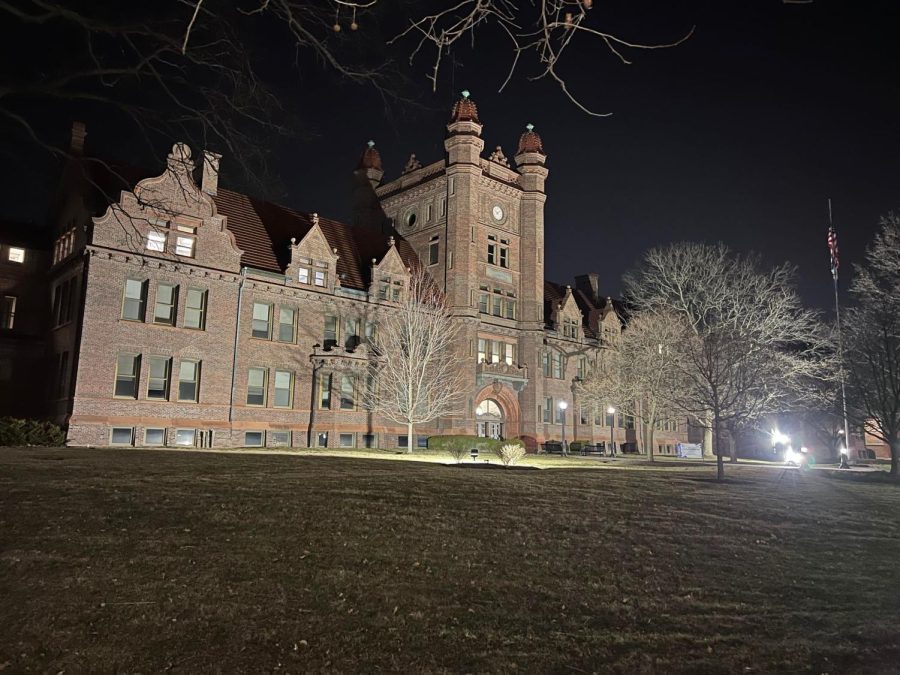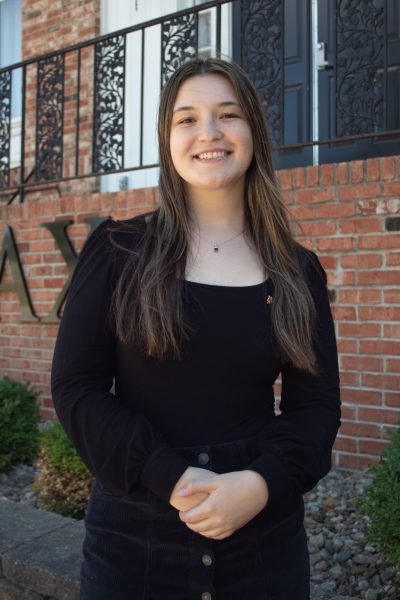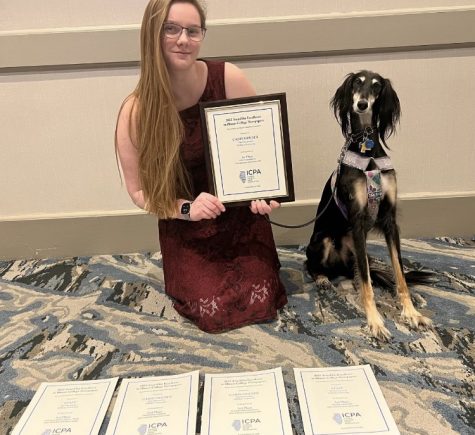Professors do not only teach, they observe.
Professors at Millikin who have been employed since 2016 have observed students’ reactions to each election.
2016 was the first of many chaotic elections to come. Donald Trump was running against Hillary Clinton, and people began to take clear stances.
Either you were absolutely afraid of Trump winning, or you were ecstatic. There may have been many people who didn’t particularly care, but this was the first election in a while that got people out to vote for who they believed in.
The current Director of the School of Writing, Languages & Cultures, Dr. Julie Bates, was newly employed in 2016, but she vividly remembers student’s attitudes surrounding the 2016 election.
Dr. Bates was teaching a night class that semester, and the class happened to fall on election night.
“We were actually trying to have class on election night in a classroom where everyone was on computers, and essentially everyone was just refreshing the information that was coming in from all the polls repeatedly all evening,” Dr. Bates said. “I don’t remember whether we actually succeeded in doing anything in class that night. I remember a lot of very excited and very nervous students.”
Dr. Bates and the students left that class still in the dark, they had no clue who was going to be the President of the United States.
The polls were showing Clinton ahead, but in the morning, it became apparent that Trump would be the next President.
“I vividly remember coming to campus the next morning and [seeing] a lot of very tired, shocked, and alarmed faces,” Dr. Bates said. “I remember having a whole group of students come to my office who were [marginalized in multiply ways] or in some way felt very scared and threatened once they found out who had won the election.”
The outcome of the 2016 election emboldened Republican students. They could now speak their mind freely and felt good about it knowing that the President backed their beliefs.
“Students who had very strong beliefs that didn’t fit in with other perspectives in the class and who had generally kept those beliefs to themselves in that semester maybe felt more emboldened to be aggressive and to speak up in ways that felt very threatening to other students,” Dr. Bates said. “It was like that particular election in 2016 made them feel as if they had a right to speak up and to say what they wanted to say.”
Although this didn’t happen much in Dr. Bates’ classes, some professors dealt with these outbursts and attitudes much more.
The next election year was 2020, and America was coming right out of Trump’s presidency. During the 2020 election, people still had these strong beliefs. But this time, it was Trump versus Joe Biden, the former Vice President.
This election fell amid the COVID-19 pandemic.
“I didn’t have the same feel of what students were thinking or feeling, and the classroom dynamics weren’t the same,” Dr. Bates said.
Dr. Bates recalls having classes on Zoom during this time, so there weren’t many opportunities to see how students were feeling about the election.
History professor, Dr. Dan Monroe, recalls COVID–19 having a large impact on the election.
“Students were concerned about how COVID fit in with the larger issues that were at hand, not only in Donald Trump’s presidency but just writ large,” Dr. Monroe said. “It made for concern related to COVID more than anything else you know, in other words, how do I vote? How do I get to the polls?”
The 2020 election was heavily affected by COVID-19, but the tension was still there. Students were still scared; professors just weren’t there to see it.
The 2024 election is happening right now, and students are scared.
“I only have a couple [of] classes this semester, and honestly, a lot of students seem nervous but hopeful, and it’s just so uncertain,” Dr. Bates said.
This election year, students are bracing themselves. There are going to be big reactions from both political parties, regardless of who wins.
But this year, students do not have election day off. They also do not have that following day off, but the uncertainty and anticipation will surely carry over into classes on Tuesday and Wednesday.
“I asked [some students] if they wanted to informally share some of their research and stuff in class on Wednesday, and they were like, ‘well we could do that, but we’re not really sure what state of mind we’re gonna be in,’” Dr. Bates said.
Students are going to be staying up late on Tuesday night, so who knows how many people will be in classes on Wednesday? Those who venture to classes may even look like zombies. Wednesday could truly be a mess for students and teachers alike.
“Depending on the outcome, I expect there will be a lot of students not in class on Wednesday and not wanting to leave their beds, potentially, or their homes,” Dr. Bates said.
Many people say that this is the most important election of our time, but is it? Depends on who you ask.
“I often tell students that this kind of passion about presidential elections is not unusual,” Dr. Monroe said. “You know, in other words, we’ve had lots of elections where there’s been a certain amount of near hysteria, about one side or the other winning.”
There have been countless changes throughout the last three elections. People have gotten extreme, new presidential candidates have come forward, and people have changed their minds.
“Malcolm X gave a speech in 1964 called “The Ballot or the Bullet,” and then Abraham Lincoln gave a talk—well, he sent a message—to Congress in 1861, where he uses the same kind of phraseology,” Dr. Monroe said. “What they basically meant was that you should never abandon the ballot for the bullet. In other words, just because you lose an election or because your candidate doesn’t win doesn’t mean that you should embrace violence or, you know, choose the bullet.”
These past elections have been intense, and the 2024 election is no different. But remember, there will be another election. So, remember to pick the ballot and not the bullet.



